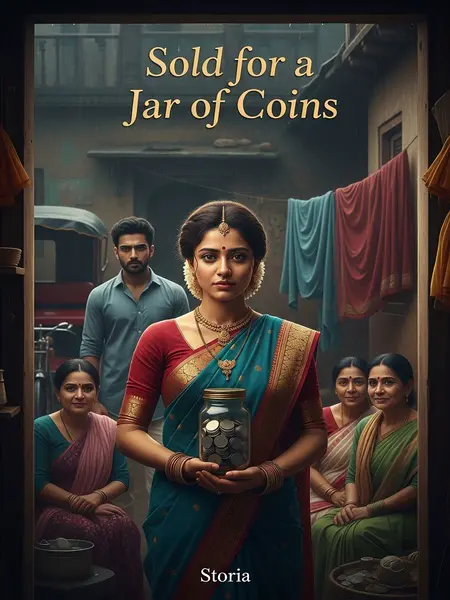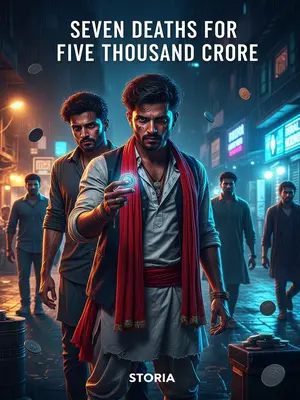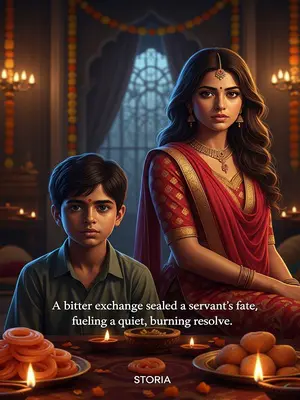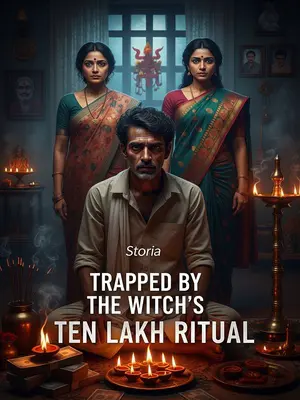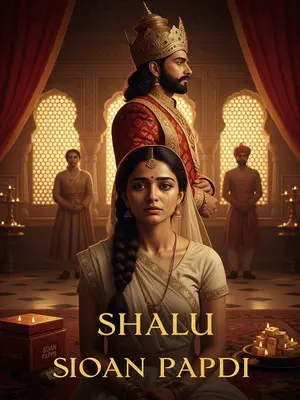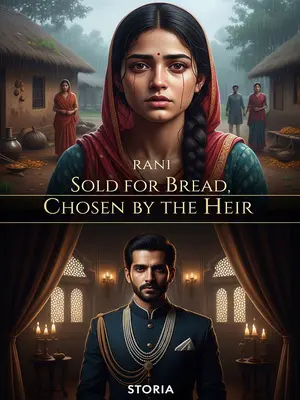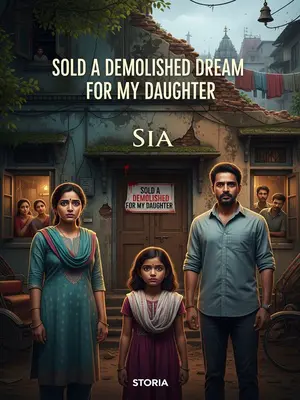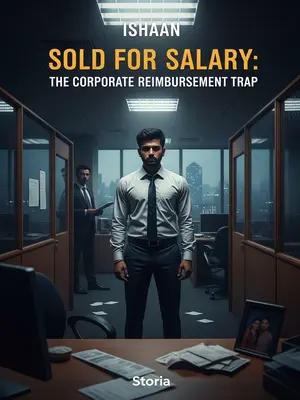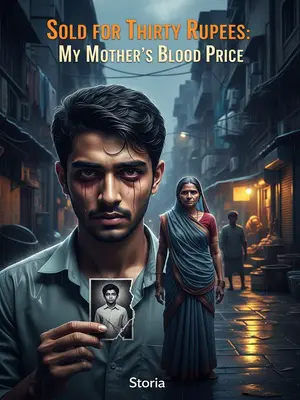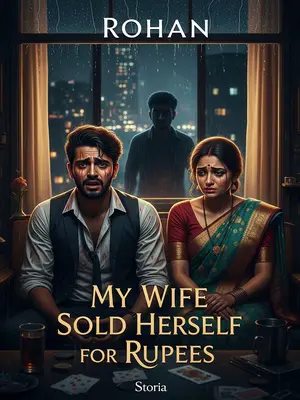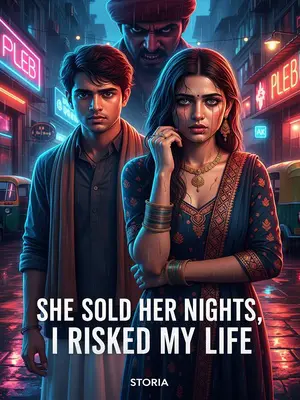Chapter 1: The Price of Belonging
The year of the drought, my Mausi sent me to seek shelter with my fiancé’s family, the Sharmas.
The government tanker came only twice a week, and the neighbours fought over every drop. Even now, I remember the air heavy with the smell of hot dust and the distant sound of a koel calling from the neem tree outside Mausi’s house. She wrapped my meagre belongings in a faded dupatta, pressed a cold coin into my palm, and dabbed my forehead with her anchal, her eyes lingering on me a moment longer than usual. "Go, beta. The Sharmas are family. You’ll be safe there."
Rohan Sharma looked down on me. He eyed my faded salwar kameez, then lazily pointed at the empty Horlicks jar on the table.
He didn’t bother to hide his scorn, almost wrinkling his nose, as if my patched clothes and scraped knees would stain their white-washed bungalow. The jar, its blue lid sticky with old sugar, had seen better days, but it stood between us like a challenge.
"Shaadi ke liye kapda kharidne ke paise nahi hain, samjhi?"
His voice was flat, but the words stung. Aunty’s eyebrow shot up, and she exchanged a quick look with Uncle, who kept folding his newspaper, pretending not to listen. Even Chintu, their servant, paused from wiping the floor, glancing at me with pity.
"When you’ve saved enough to fill that jar, I’ll marry you."
His words rang out, heavy as the heat that pressed on the house, as if the promise was nothing more than an afternoon’s whim.
Arrey, saving money is really tough.
I muttered this to myself in the kitchen that first night, staring at the brass rice canister Mausi had sent with me, now nearly empty. The Sharma house ran like clockwork, but every penny counted. Even the old man who sold guavas outside the gate counted his change twice before giving me a fruit for half price. Here, even a rupee had its own journey. Suddenly, my phone buzzed—a WhatsApp ping from my cousin: 'Reached safely, Neha?' I stared at the screen, thumb hovering, but didn’t reply. The silence felt thicker than the kitchen walls.
For a year, I pinched every rupee. In winter, I broke ice to wash clothes in the backyard; in summer, I wove mats and stitched chappals. My fingers turned red and numb, the cold water biting harder than Mausi’s old scoldings. My hands were full of old and new cuts.
Sometimes, at dawn, I’d warm my hands over the little coal sigri, rubbing balm into my cracked skin. The neighbours’ pressure cookers would hiss and whistle, while I scrubbed and rinsed saris until my fingers went numb. Each cut reminded me: one day, I’d fill that jar.
When the jar was finally almost full, Mausi said there’d been a mix-up—the engagement wasn’t with the Sharma family, but with the Sahu family.
The words dropped like a stone in the middle of my plans. Mausi, her forehead creased with worry, pressed my hands and tried to make light of it, but I could hear the trembling in her voice. She dabbed my forehead with her anchal again, as if to wipe away her own doubt: "What to do, beta? These things happen. You’re meant for better."
When the Sahu family’s wedding Ambassador came to fetch me, Rohan Sharma was nowhere to be seen, and the servant Chintu looked worried:
Outside, the sun dipped behind the amaltas, painting the street gold as the evening aarti bells began from the temple lane. The Ambassador, borrowed from someone’s uncle, was parked by the gate, and Chintu’s hands fidgeted with his old gamcha as he blocked my way.
"That Sahu family is too poor, didi," he whispered, glancing at the neighbours, as if afraid someone might overhear his criticism. "If you marry there, I’m afraid they don’t even have a pressure cooker. Even the money to rent this Ambassador—half was saved by copying notes for others, and half was pooled together by friends from tuition."
He said it so earnestly, as if a missing pressure cooker could decide the fate of a marriage. In our town, not having a Hawkins cooker was a calamity, almost as bad as not having a fridge during summer.
The Ambassador had marigold garlands hanging from each side mirror. Though old, it was clean and tidy—you could see it was arranged with care. Looking at it, my heart felt light, and I pressed my lips into a smile.
A gentle breeze lifted the scent of marigolds. The seat covers were stitched from mismatched saris, the windows cleaned till they shone. It wasn’t much, but someone had cared enough to make it beautiful for me. My heart, heavy for so long, fluttered a little with hope.
"It’s alright. I’ve saved some money too." Mausi always said, apni mehnat ka paisa, sabse meetha.
The words came out quietly, but with a strength I hadn’t known I possessed. I glanced down at the full Horlicks jar, the coins inside shining in the late afternoon sun, and felt a quiet pride.
Hugging that small, full Horlicks jar, I climbed into the Ambassador.
I settled onto the seat, the cool vinyl sticking to my skin, and waved back at Chintu. As the car rumbled away, I caught my reflection in the dusty window: tired, yes, but not defeated. Somewhere inside, a new story was beginning.
As the Ambassador turned the corner, I pressed my forehead to the cool glass, letting a single tear slip down. This time, it was for hope, not regret.
Behind us, the Sharma gate creaked open. Someone was watching—maybe too late.
